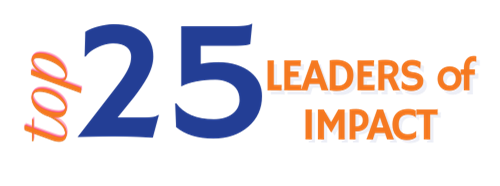ATHENS, Ohio (April 8, 2019) – The Appalachian Recovery Project (ARP), Ohio University’s College of Health Sciences and Professions (CHSP) and key University partners will soon be able to provide increased support to women across five Appalachian counties in their fight to overcome addiction through a $1.1 million POWER grant from the Appalachian Regional Commission (ARC).
The new grant funding will be utilized to create a recovery ecosystem that will connect approximately 300 justice-involved women in Southeast Ohio struggling with substance abuse disorders to a coordinated regional network of treatment, recovery and workforce training programs.
“This is a manifestation of the power of partnership,” said Randy Leite, dean of the College of Health Sciences and Professions. “I’m excited that our college has been able to bring people together and I’m excited that the Appalachian Regional Commission is generously supporting the effort.”
Tracy Plouck, an executive in residence for CHSP’s Ohio Alliance for Innovation in Population Health and principal investigator for the grant, explained that, although the region’s overall recovery project is comprised of numerous components, the core focus of both the ARP and the grant funding is to foster a productive, safe recovery environment for regional women involved with the legal system due to addiction.
“We’re bringing different kinds of resources from the community to bear into a single network so that we can more effectively assist women who are trying to connect with recovery,” Plouck said. “Making sure there is a robust connection to services and support in the communities is extremely important. We’re trying some different kinds of engagement strategies to that end.”
Plouck outlined numerous treatments, recovery and workforce programs that will become possible as a result of the $1.1 million grant, including:
- The STAR Community Justice Center will provide residential-style addiction treatment for misdemeanant women who are leaving jail and/or who are enrolled in a certified drug court.
- Numerous physical and behavioral health agencies will partner to offer primary care, outpatient addiction treatment, opioid overdose quick response teams and other clinical services to justice-involved women who are currently experience a challenge accessing such services.
- Community health worker interns will engage the women and help to connect them to necessary clinical and social services supports.
- A focused arts program will be offered in order to teach positive coping skills in recovery.
- Vocational training and job placement will be available to women as they progress in their recovery journey.
Leite noted that providing such needed recovery support mechanisms to the Appalachian region is the right path — both socially and morally.
“When you look at the scourge of opioid addiction and the impact it’s had on this region, I think for us, morally, to step up and try to address it, that is important,” Leite said. “Most importantly, what we’ll end up with is hundreds of women who, at some point, will have left addiction behind and will have moved beyond addiction. And not only will they benefit from these opportunities, but their children will benefit, their family members will benefit and their future employers will benefit. I think it’s impact that we can all get excited about and take great pride in.”
ARC Federal Co-chair Tim Thomas said that the POWER Initiative was created to help strengthen and diversify economic opportunities in coal-impacted communities. He noted the correlation between those suffering from economic distress and substance abuse and said that the ARC’s highest priority is to fight the opioid crisis.
“Treatment and recovery is a journey, and you have to have support services for these people beyond treatment,” he said. “We have to build a recovery ecosystem within the Appalachian region to help bring these people through recovery.”
As part of the Appalachian Recovery Project, the Ohio Valley Center for Collaborative Arts, part of OHIO’s College of Fine Arts, plans to establish art and music therapy for the women at the residential treatment center and provide some continuing access in the community for a period of time. CHSP’s community health worker program will expand to better focus on engaging the women who are moving back to the community and who are early in their recovery. Three cohorts are expected to train 45 community health workers as part of the grant. The first cohort will begin in July.
OHIO’s Voinovich School of Leadership and Public Affairs has helped with the initial planning efforts for the Appalachian Recovery Project, conducting a financial feasibility study and working with county auditors to create an appropriate pricing structure. Going forward, the School will evaluate the multi-faceted project to ensure important outcomes are being met.
“I think this is a real opportunity to collect a lot of resources that had existed in the community and build them out in a way that will be meaningful for the women who are justice-involved in this area,” Plouck said. “We can continue to build on this foundation as we move forward and hopefully expand the kinds of services that are offered and expand the number of women who are able to rebuild themselves at the program.”
Ohio University Executive Vice President and Provost Chaden Djalali said OHIO is excited to be part of such a collaborative project, between federal government, state government, higher education and beyond, to address the opioid epidemic.
“Ohio University is fully on board with this collective effort, and there’s nothing that can stop us when we’re united,” Djalali said. “I really think we can achieve great things in this region and become a national leader with our recovery support efforts.”
The $1.1 million grant is joined by matching funds from Ohio University ($205,248), Perry County Municipal Court ($105,000), Hocking County Municipal Court ($50,000), the Ohio Department of Rehabilitation and Correction ($42,725) and the 317 Board ($68,355) for a total of $1,571,328 for programs for the project.
“I think it’s going to make a really big difference for 300 women to have this opportunity,” said John Carey, director of the Governor’s Office of Appalachia. “It’s not only life-changing, it’s lifesaving.”
###
Photo attached (20190403_AppalachianRecoveryProject_004.jpg) – Suggested Caption: Ohio University College of Health Sciences and Professions (CHSP) Dean Randy Leite (center) speaks with OHIO Executive Vice President and Provost Dr. Chaden Djalali (left) and CHSP Executive in Residence for the Ohio Alliance for Innovation in Population Health Tracy Plouck (right) during the announcement of a $1.1 million POWER grant by the Appalachian Regional Commission that will be utilized by OHIO’s Appalachian Recovery Project to create a recovery ecosystem for justice-involved women in Southeast Ohio struggling with substance abuse disorders.
Additional materials, including additional event and infographic images, available online. (Direct Link): https://catmailohio.sharepoint.com/:f:/s/CHSP-CommunicationsDepartment/EnOsUlIdxCBLo-PyGlymGKMBJ9WDA-AVh6hLi58jI9lhjg?e=Ddpd0d
Media Contact: CHSP Associate Director of Communications Dan Pittman at pittmand@ohio.edu or 740.566.0212
Visit CHSP’s official media page for the latest news and updates, or follow us on Twitter @CHSPOhio.
About the Appalachian Regional Commission
The Appalachian Regional Commission is an economic development agency of the federal government and 13 state governments focusing on 420 counties across the Appalachian Region. ARC’s mission is to innovate, partner and invest to build community capacity and strengthen economic growth in Appalachia to help the Region achieve socioeconomic parity with the nation.
About the College of Health Sciences and Professions
Ohio University’s College of Health Sciences and Professions (CHSP) is a place where innovative education and research happen every day. Each year, more than 3,600 students graduate from our Athens and Dublin-based campuses prepared to serve as passionate professionals who are ready to change the world. As one of the largest health-focused colleges in the country, CHSP has a growing portfolio of degree and certificate programs housed in six academic units: the School of Applied Health Sciences and Wellness; the School of Nursing; the School of Rehabilitation and Communication Sciences; the Department of Social and Public Health; the Department of Social Work and the Department of Interdisciplinary Health Studies. All six connect faculty and students across multiple disciplines to explore the best approaches to addressing health and wellness in various settings. Find out more at: www.ohio.edu/chsp.
About Ohio University
Ohio University strives to be the best student-centered, transformative learning community in America, where approximately 40,000 students realize their promise, faculty advance knowledge, staff achieve excellence, and alumni become global leaders. OHIO is committed to fostering, embracing, and celebrating diversity in all its forms. Our Athens Campus offers students a residential learning experience in one of the nation’s most picturesque academic settings. Additional campuses and centers serve students across the state, and online programs further advance the University’s commitment to providing educational access and opportunity. Visit www.ohio.edu for more information.










